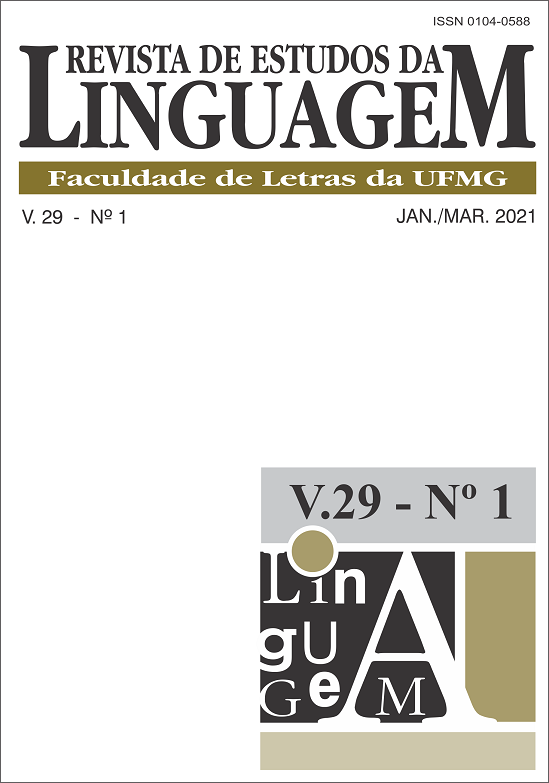Efeitos de frequência da L2 inglês no processamento da passiva em L2 português brasileiro
DOI:
https://doi.org/10.17851/2237-2083.29.1.215-258Palavras-chave:
bilinguismo, efeitos de frequência, proficiência em L2, construção passiva, julgamento de aceitabilidade, produção escrita, produção oralResumo
Este estudo investigou a influência da experiência com L2 inglês no processamento de passivas em L1 português brasileiro (PB) por bilíngues de alta proficiência e monolíngues do PB. Baseando-se na premissa de que alta proficiência em L2 é indicativa de compartilhamento generalizado de representações (BERNOLET; HARTSUIKER; PICKERING, 2013) e na observação de que a passiva é significativamente mais produtiva em inglês do que no PB (GUIMARÃES; SOUZA, 2016)propomos uma visão construcional da construção, na qual ela é tomada como entidade teórica independente. Apesar de sintaticamente congruente no português brasileiro (PB, espera-se que o processamento da construção por bilíngues seja facilitado pela exposição à L2. A compreensão da construção foi observada através de uma tarefa de julgamento de aceitabilidade de sentenças, enquanto a produção foi observada a partir de duas tarefas de descrição de imagens (uma escrita e outra oral). Tanto bilíngues quando monolíngues julgaram a passiva tão aceitável quanto a ativa, sem diferença significativa nos julgamentos entre os dois perfis linguísticos. Apesar de as passivas terem sido menos frequentes do que as ativas nas tarefas de produção, o tipo de tarefa influenciou o número de ocorrências de passivas dentre os monolíngues: sua produção foi similar à dos bilíngues na tarefa escrita, mas significativamente menor na tarefa oral. A diferença nos níveis de produtividade de passivas entre bilíngues e monolíngues é atribuída à exposição dos bilíngues às propriedades distribucionais da construção na L2, corroborando modelos de compartilhamento representacional bilíngue (HARTSUIKER; PICKERING; VELTKAMP, 2004).





